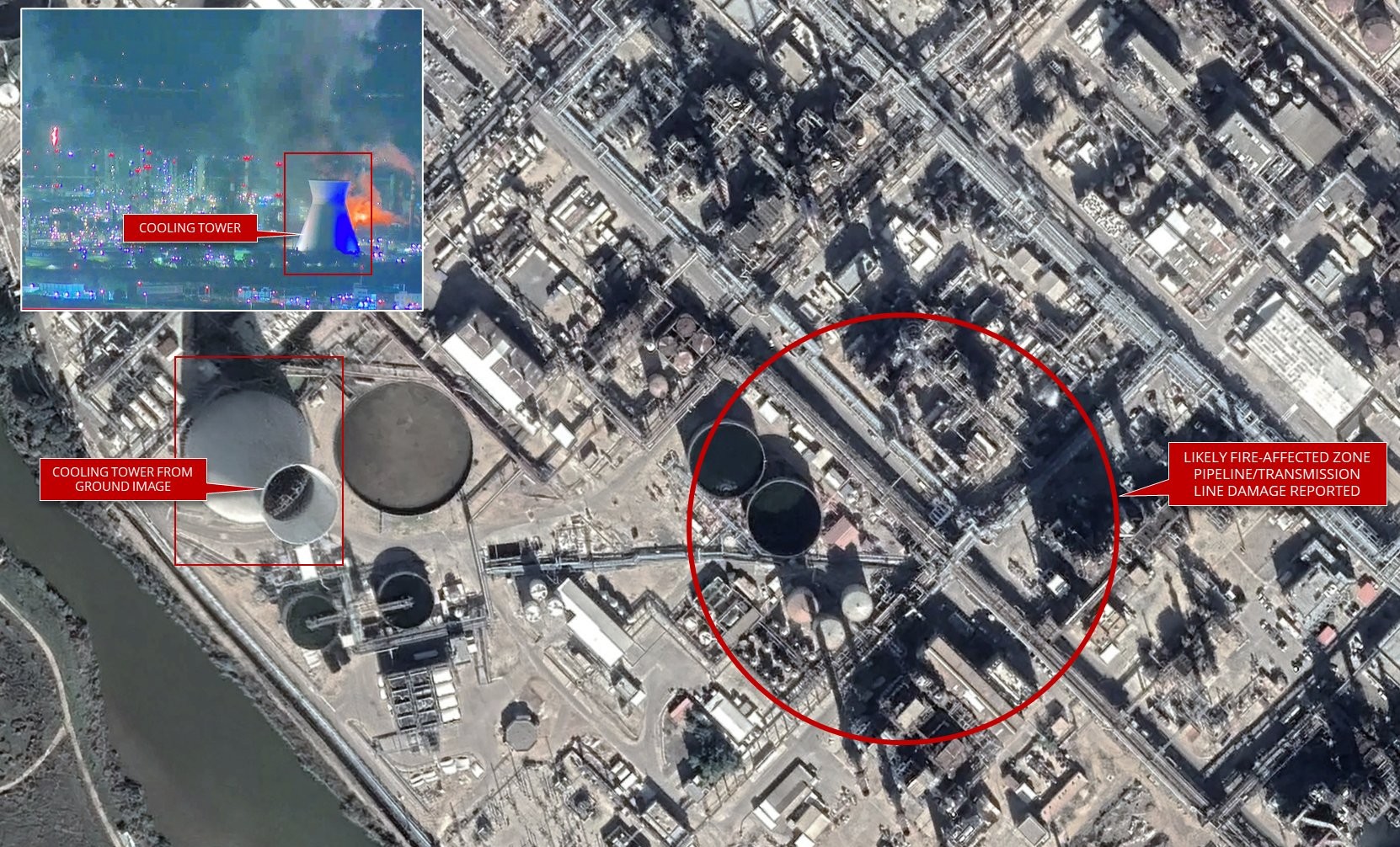A fire broke out at the Haifa refinery in northern Israel after it was struck by missiles launched by Iran late on June 15. The attack, seen as retaliation for recent Israeli airstrikes that killed several high-ranking Iranian Revolutionary Guard Corps (IRGC) commanders including Iran’s armed forces chief Mohammad Bagheri, has escalated tensions across the region.
Satellite images and verified footage from the scene show damage to critical pipelines and transmission lines within the refinery complex. Emergency crews are working to bring the fire under control, while assessments of the full extent of the damage are ongoing.
According to experts, the strike indicates a notable improvement in Iran’s missile capabilities. A recent report from the International Crisis Group suggests Iranian missile precision has increased by nearly 30 percent since 2020. The Haifa refinery is considered a strategic asset within Israel’s energy network, and the strike has raised concerns about broader disruptions in the energy sector.
While the refinery is located near Haifa Port—a major international trade hub now operated by India’s Adani Group—port operations remain unaffected. Adani Group’s CFO, Jugeshinder Singh, clarified that no damage occurred at the port, and cargo handling continues as normal. The facility handled over 10.6 million metric tonnes of cargo in the fiscal year 2025 and plays a key role in the Europe-Asia shipping route through the Suez Canal.
This incident is the latest in a series of confrontations between Iran and Israel, which have included Israeli operations targeting Iranian nuclear sites and senior military officials. Analysts warn that continued escalation could destabilize the broader West Asian region and impact global energy markets.
Authorities in Israel are closely monitoring the situation and have heightened security around critical infrastructure points as diplomatic channels work to contain the fallout.













